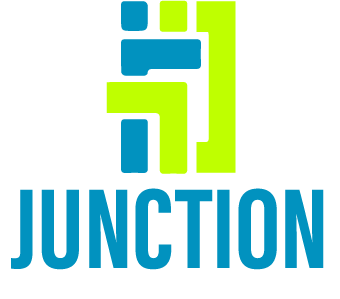Kids grow by leaps and bounds, and the way they play evolves, too. At Kidz Junction Daycare and Out of School Care Ltd., we see these changes every day. Play sets the stage for learning, friendships, creativity, and social skills, all of which are central to our early childhood education philosophy. Today, let’s walk through the six stages of play. Understanding them can help caregivers support kids as they move from simple exploration to imaginative collaboration.
Stage 1: Unoccupied Play (6–18 Months)
Young infants, in our Early Childhood programs, often stretch, kick, or wave their arms without a clear goal. This may look random, but it’s vital groundwork for motor control and awareness. Every day, our Infant program offers a safe, warm setting and a 4:1 caregiver-to-child ratio for these early explorers to soak in sights, sounds, and textures. Daily routines, gentle sensory play, and nurturing interaction build a foundation for the Benefits of Play in Childhood Development.
Stage 2: Solitary Play (19–35 Months)
Once toddlers gain a bit of independence, they often enjoy playing alone. This is their time to test ideas, discover cause and effect, and develop focus. In our Toddler Program, we deliver just that: creative arts, sensory bins, and hands-on learning in a toddler-friendly environment. Caregivers guide, but let toddlers lead. That one-on-one focus fosters self-confidence and aligns beautifully with the Childhood Play Development Stages.
Stage 3: Onlooker Play (36 Months–4½ Years)
As children approach preschool, they start watching other kids play before jumping in. This is an important turning point in early childhood education, as they’re absorbing how peers negotiate, share, and solve problems. Our Preschool Program includes story circles, dramatic centres, and problem-solving activities that let children observe and then engage. It’s all structured to highlight the Benefits of Play in Childhood Development through guided observation and interaction.
Stage 4: Parallel Play (4½–6 Years)
In our Kinder Program, kids often play side by side, building blocks or drawing, but not yet collaborating. They’re learning social norms, respecting boundaries, and gaining confidence. Our learning centres, science, arts, books, and dramatic play offer rich solo exploration while peers are near. This setup prepares children for the next developmental leap and fits right into those Childhood Play Development Stages.
Stage 5: Associative Play (4½–6 Years)
Then comes the moment when kids begin talking, sharing, and playing alongside each other, though not with a shared goal yet. In Kinder, group projects, creative art sessions, and shared dramatic play invite this kind of interaction. Conversations pop up, ideas shift, and children learn cooperation naturally. These are the wonderful Benefits of Play in Childhood Development, boosting language, turn-taking, and budding friendships.
Stage 6: Cooperative Play (6–12 Years)
By school age, full teamwork emerges. In our Out of School Program, kids plan projects, solve problems together, or team up in outdoor games. We assign roles in group work, build literacy through reading club sessions, and mix academic activities with outdoor play. This level of collaboration reflects the peak of the six stages of play, encouraging empathy, leadership, and strong communication skills.
Recent Blog: How to Build Independence in Preschoolers?
Why These Stages Matter?
Because Kidz Junction provides a full suite of programs, from Infant through Out of School, we can support each child right where they’re at. That continuity means children don’t have to adapt repeatedly to new environments; instead, they build comfort, trust, and momentum. Our Early Childhood programs carefully align with each play stage while balancing academics, fun, and structure. That balance drives the Benefits of Play in Childhood Development, school readiness, social engagement, and a lifelong love of learning.
Ready to Let Your Child Thrive?
At Kidz Junction Daycare and Out of School Care Ltd., play is not just fun, it’s meaningful learning. From sensory time with infants to collaborative games with school-agers, each step follows the six stages of play and promotes holistic development. Our programs in Edmonton and Leduc are designed to meet your child right where they are, and lift them naturally to the next level.
Curious to see it in action? Book a tour, come visit us, or reach out. Let’s explore how a nurturing, expertly guided play journey can support your child’s growth, curiosity, and confidence.
Frequently Asked Questions
Q1: What are the six stages of play?
They are unoccupied, solitary, onlooker, parallel, associative, and cooperative play. They map how kids evolve their thinking and interaction.
Q2: How does Kidz Junction support these stages?
Each of our programs, Infant, Toddler, Preschool, Kinder, and Out of School, layers play-based activities and learning centers that match children’s current stage and encourage the next.
Q3: Does a child skip stages?
Not usually. Most children move through these stages naturally, and they may revisit earlier ones depending on comfort and context
Q4: Why is cooperative play so important?
When kids play together toward a goal, they develop empathy, leadership, negotiation, and language skills. These are the powerful Benefits of Play in Childhood Development.
Q5: How does play connect to learning?
Whether it’s counting blocks, sharing stories, or cooperating on a project, play is pure learning. It touches literacy, math, social skills, creativity, and more, especially in our well-designed early childhood education settings.

